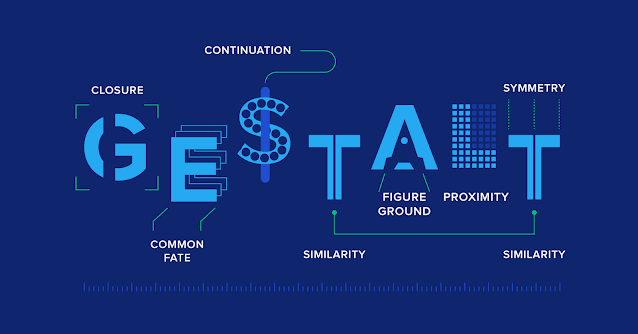Gestalt psychology is a fascinating branch of psychology that emerged in the early 20th century. It focuses on how individuals perceive and make sense of the world by emphasizing the idea that our minds naturally organize information into meaningful patterns and wholes. In this article, we will explore the key principles, concepts, and contributions of Gestalt psychology.
The Core Principles of
Gestalt Psychology
1. Perception of Wholes
One of the central tenets of
Gestalt psychology is that individuals tend to perceive objects and scenes as
unified wholes rather than as a collection of separate parts. This principle is
encapsulated in the famous phrase, "The whole is greater than the sum of
its parts."
2. The Role of Perception
Gestalt psychologists argued
that perception is an active and constructive process. Our minds automatically
organize sensory information to create meaningful perceptions, even in the
absence of complete information.
3. Gestalt Laws
Gestalt psychology
introduced several principles or laws that describe how people perceive and
organize visual elements. These include the principles of proximity (objects
close to each other are seen as a group), similarity (similar objects are
grouped together), and closure (the mind fills in gaps to perceive complete
forms).
Gestalt Psychology and
Visual Perception
Figure-Ground
Relationship
One of the fundamental
concepts in Gestalt psychology is the idea of a figure-ground relationship.
When we look at an image or scene, we tend to distinguish between the main
object of focus (the figure) and the background (the ground). This
differentiation helps us make sense of visual information.
Illusions and Ambiguities
Gestalt psychology has
provided insights into optical illusions and perceptual ambiguities. These
phenomena illustrate how our brains interpret visual input based on the
principles of Gestalt perception, sometimes leading to perceptual errors or
misinterpretations.
Applications and
Influence
Art and Design
Gestalt principles have had
a significant impact on art, design, and aesthetics. Artists and designers use
these principles to create visually pleasing and harmonious compositions,
utilizing concepts like symmetry, balance, and unity.
Cognitive Psychology
Gestalt psychology has
influenced the field of cognitive psychology, particularly in the study of
problem-solving and decision-making. It has shed light on how people approach
complex tasks by organizing information into meaningful structures.
Criticisms and Modern
Perspectives
While Gestalt psychology
made valuable contributions to the understanding of perception and cognition,
it has also faced criticism for its limited scope and lack of attention to
individual differences and cognitive processes.
Modern cognitive psychology
has integrated some Gestalt principles with a broader range of cognitive
research, offering a more comprehensive understanding of human perception and
thought processes.
Conclusion
Gestalt psychology's
exploration of how we perceive and organize the world around us has left an
enduring mark on the field of psychology. Its emphasis on the role of
perception and the holistic nature of human cognition has provided valuable
insights into how we make sense of our visual environment. As we continue to
study and understand the complexities of human perception, Gestalt psychology's
foundational principles remain an important part of our understanding of the
human mind and its remarkable capacity to organize and interpret the world.


Post a Comment